Statistical sampling and dynamics¶
This section contains recipes that compute thermodynamic averages by sampling, evaluates dynamical properties, or otherwise computes the properties of a set of configurations of an atomistic system.
Constant-temperature MD and thermostats
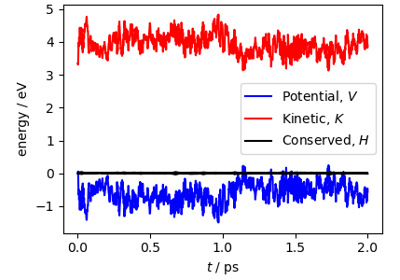
Path integral molecular dynamics
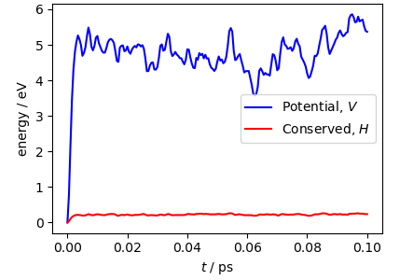
Path integral metadynamics
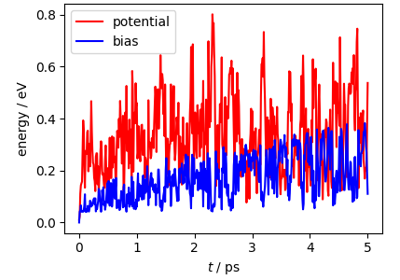
Batch run of CP2K calculations

Quantum heat capacity of water
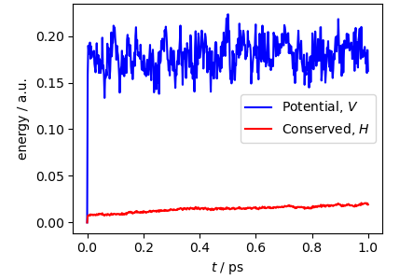
Multiple time stepping and ring-polymer contraction
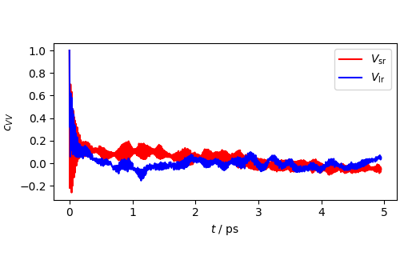
Atomistic Water Model for Molecular Dynamics
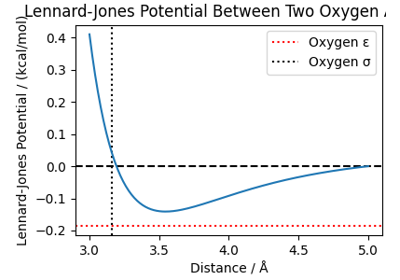
ML collective variables in PLUMED with metatomic
